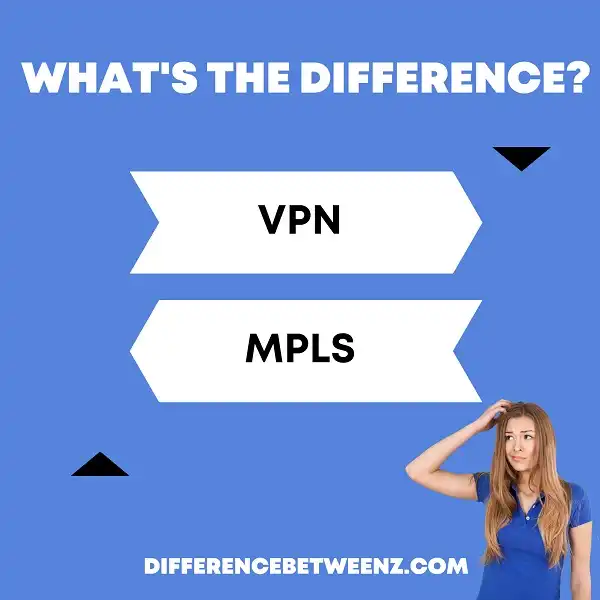VPN and MPLS are two different technologies that have different uses. VPN is typically used to connect remote offices or individual users to a company network, while MPLS is often used to create a private network for a specific group of users. Understanding the difference between these technologies can help you decide which one is right for your needs.
What is VPN?
VPN is a short form of Virtual Private Network. VPN creates a secure tunnel between your device and the internet. This encrypted connection helps to keep your data safe from hackers and snoopers. VPN also helps to bypass geo-restrictions and censorship. By connecting to a VPN server in another country, you can access websites that are otherwise blocked in your country. VPN is an essential tool for online privacy and security.
What is MPLS?
MPLS network is a type of data-carrying network. MPLS stands for Multi-Protocol Label Switching. MPLS networks are used to carry many different types of traffic, including voice, video, and data. MPLS networks use labels to route traffic. This makes MPLS networks more efficient than traditional IP networks. MPLS networks can also provide Quality of Service (QoS). QoS allows you to prioritize certain types of traffic, such as voice or video. MPLS networks are typically used by large organizations, such as corporations or government agencies.
MPLS network providers can offer different levels of QoS, depending on the needs of the customer. MPLS networks are private and secure. MPLS network providers can also offer VPN services, which adds another layer of security. MPLS is a robust and scalable networking solution that can meet the needs of even the most demanding customers.
Difference between VPN and MPLS
VPNs and MPLS are both types of network technologies that can be used to connect multiple devices or locations. VPNs create a private network using public infrastructure, while MPLS uses a dedicated network with private infrastructure. VPNs are typically cheaper and easier to set up, but they can be slower and less reliable than MPLS. MPLS is more expensive, but it offers better performance and reliability. VPNs are best suited for small or medium-sized businesses, while MPLS is better suited for large businesses or organizations with complex networking needs.
Conclusion
While VPN and MPLS offer similar security benefits, there are some key differences between the two technologies. In particular, MPLS is better suited for managing and directing traffic in a corporate network, while VPNs are more commonly used to connect remote employees to the company network.


